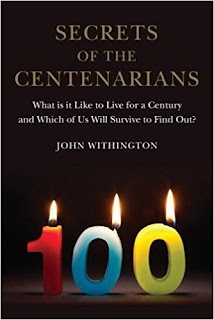One thing the Brexit referendum and its aftermath has surely illustrated is that even if we finally defeat Brexit, we cannot afford to just go back to things as they were. The UK needs a whole host of reforms - e.g. an elected Second Parliamentary Chamber, a fair and honest press, and a democratically elected House of Commons.
Because of our antiquated first-past-the-post (FPTP) electoral system, UK governments are virtually always elected by a minority of the voters. That's right. The governments who wield almost absolute power over us are governments most people voted against.
Below is an exchange of emails I have had with my MP, Sir Keir Starmer, on the need to switch to a proportional system in which if you get, say, 40 per cent of the vote, you get 40 per cent of the seats in Parliament. Feel free to use any of my arguments if you wish to pursue this important cause.
Dear Sir Keir,
Thank you for your reply. I am encouraged that you do not oppose a fairer electoral system as many Labour and Conservative politicians unfortunately do, but, respectfully, I think the problem of a government and parliament that fails to reflect the way people voted is a bigger problem than you realise.
You say FPTP has 'a history of generally returning stable, single-party governments', but when such government enjoy the support of less than half the electorate, this is a weakness and not a strength. For it means that governments are constantly imposing things the majority of voters were against.
Often such policies are extremely damaging - the poll tax, the Iraq War, an extreme Brexit. No wonder people are disillusioned with politics!
If the constituency link is something you value, this can, of course, be preserved in proportional systems. However, it is easy to overstate the value of this supposed link. A survey in 2013 showed that barely a fifth of the people in the UK even knew who there MP was. And at the 2015 election, more than half of MPs failed to win an overall majority in their constituency. In other words, in the UK system, most MPs spend most of their time voting for things most people in their constituencies are against.
Of course, it is a good thing to ensure that people register to vote, and I do what I can on social media to encourage this. However, it is not an alternative to having a fair electoral system, and without a fair electoral system, it will not solve the disconnect between what people vote for and the government they end up getting.
As the EU referendum and its aftermath demonstrated, we cannot go on as we have been doing. Sir Keir, I urge you to get on the right side of history and become part of the solution, not part of the problem. We need a fair voting system NOW.
Yours sincerely,
John Withington
Thank you for contacting me recently regarding electoral reform.
I agree that Parliament needs to be representative of communities across Britain and to reflect different views and concerns. I also believe that we must start by making it easier for people to register to vote and to engage more regularly in politics and local decisions.
There are, of course, strengths and weaknesses to all voting systems. The First Past the Post system does have a history of generally returning stable, single-party governments and of retaining the constituency link, both of which I think are important benefits to our electoral system. I appreciate, however, that there is a case to look in detail at our electoral system and that forms of proportional representation are already used in the devolved administrations across the UK, as well as in many local authority elections.
I hope the parliamentary petition debate will allow an opportunity to consider these issues. I also believe more widely that we need to look at ways to ensure our politics connects and engages with the public. Thank you once again for writing to me and for sharing your views.
Best wishes,
Keir
Dear Sir Keir,
I trust you will be lending your support tomorrow to the introduction of democracy to elections to the House of Commons.
It is indefensible that UK governments are able to exercise virtually absolute power for five years having often won the support of little more than a third of voters and perhaps a quarter of the electorate.
No wonder the kind of disillusionment that produced the Brexit vote is rife.
Our voting system was designed for a barely literate electorate. It is not fit for the 21st century. We need proportional representation NOW.
We have seen the imposition of too many divisive policies that most people oppose - the poll tax, the Iraq War, Brexit. We cannot afford another.
I appreciate that the Labour Party may be disadvantaged (though, of course, if it promotes policies that command majority support this will not happen). But this is a time when the interests of the country must come first.
I am counting on you.
Yours sincerely,
John Withington































